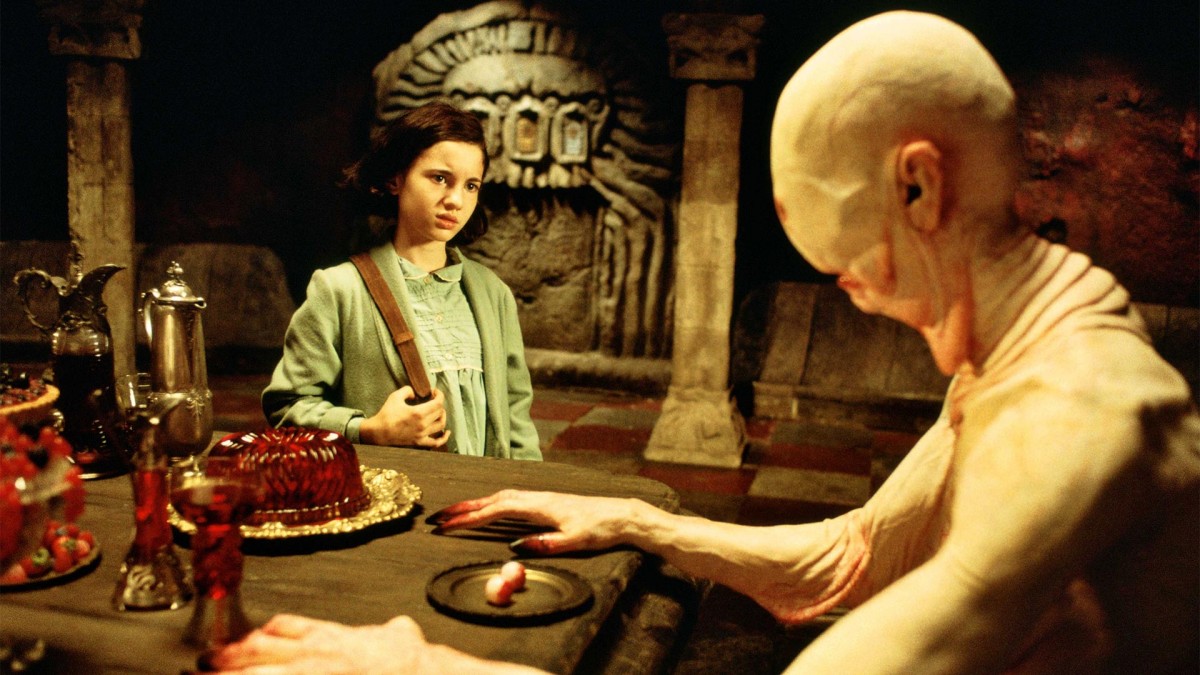Originally, I assumed metatheater was any live performance which broke the fourth wall, but that is false. Metatheater is complicated. It meditates on the play existing as theater. There are multiple ways of understanding it.
One consensus we reached in class is that a drama created by the characters in the primary narrative, such as Teodoro adopting the identity as the son of a noble, is metatheater. The characters creating characters shows construction of theater in theater. Does that mean metatheater lies in the complexity of characters? Does it mean whenever a character in a story lies about who they are it’s metatheater? Is Don Quixote metatheater?
Another aspect is that metatheater juxtaposes different threads of conflict, such as in a braided narration. But is a braided narration metatheater? According to our discussion in class, not so much.
Finally, if metatheater is live performance which shows the construction of the play in its narration, does that mean metafilm is a film of making a flim? Apparently not. Metafilm is a different, obscure concept of narratives watching each other. Dr. Carrion suggested its inextricably linked to camera angles.
Ultimately I understood from this chapter that metatheater is a form of art which deals with existential concepts.

The wall of illusion between the stage and audience whether its a drama, film, or theater, the ‘fourth wall’, had been widely talked about in this class starting from the scene of Luisa dancing to the music facing the camera in ‘Y Tu Mama Tambien’ and Angela talking calmly talking about her demise in ‘Tesis’.
Consequently, these actions of meta-theater is playfully treading the thin ice of being a character in a fiction to becoming a real character for the actors and a gateway for the audience to not fully immerse themselves into the plot and figure out that its actually a play.
In the metafilm we watched hints of a drama was abundant. Such as characters with narrations portraying their feelings towards the audience or the small groups of kids starting their dance in the start of the film and ending their dance in the later part of the film. Especially in the end of the film, the ‘fourth wall’ is shattered by enlarging the view from frontal to wide scope birds eye point of view the camera containing numerous people dancing with each other.
Since reading Ables’ “Metatheatre: Shakespear and Calderón” I have reflected on my own experience with this question: Are there dramas (social or otherwise) that I want to leap out of or take control of.
A wave of thoughts comes crashing in. The amount of dramas that I experience (or believe to experience) are many! The political dramas of our time are ample, whether that be regarding voting, Kavanaugh, party disillusionment, social disillusionment, etc. They are dramas that I have always played along with, even my resistance was dictated by “the terms of the game”. Can I jump out of these dramas without leaving myself behind?
With regards to literature (as if pure and detached from everything else), metatheater is clear. The character takes control of the drama by playing a different character all together.
Here, my thought takes me to moments I have “changed character”. I think of the moments I realized the stupidity of the role I was playing and all the ambitions I was supposed to accept under that character. I am not, as it were, “the same person” as I was six years ago. Many of the differences were accidental, but many more were deliberate. I decided I wanted to care about something else, I didn’t want to care about making friends with the ‘desirables’, I wanted to be alone and not be “Abram”.
Abram became outside of me. Abram became a character in a ridiculous play that was not going anywhere but all the other characters (and myself at a time) believed the play was going somewhere (or had already reached all the places it could go). I want to go somewhere else. Rather, I want to take the play somewhere else and I want to take every character with me.
I am a tyrant of mind! And this is Metatheater.